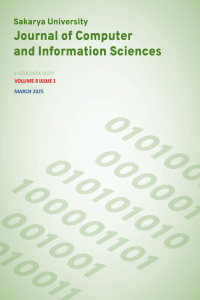Research Article
Issue Editorial Board
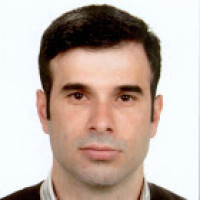

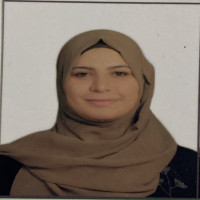



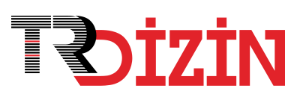
Hello, I am Maysaa Salama. I am an experienced Software Engineer in the information technology and services industry, specializing in Artificial Intelligence (AI), Blockchain, Internet of Things (IoT), and Security. Through various internships and research projects, I aim to leverage these technologies to solve real-world problems. I am committed to staying updated with technological advancements and value collaboration.
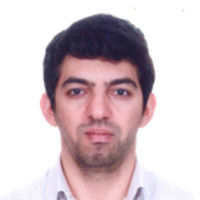
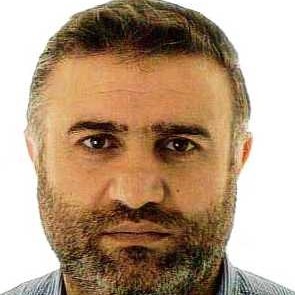
İstanbul Üniversitesi Elektronik Mühendisliğinde lisans eğitimimi 2003 yılında tamamladım. Lisans bitirme tezimin çalışmalarını Almanya Braunschweig Teknik Üniversitesi Yarıiletken Teknolojileri Enstitüsünde yaptım. Yüksek lisansımı İstanbul Üniversitesi Endüstri mühendisliğinde 2006 yılında tamamladım. 2009 yılında doktora çalışmalarım için Amerika Birleşik Devletlerine gittim. Michigan Eyalet Üniversitesi Elektrik ve Bilgisayar Mühendisliği bölümünde Prof. Dr. Virginia Ayres danışmanlığında doktora öğrenimimi 2013 yılında tamamladım. Doktora sonrası çalışmalarımı danışman hocamın Elektronik ve Biyolojik Nanoyapılar Laboratuarında yaptım ve 2014 yılı Mayıs ayında Türkiye'ye döndüm. 2015 Mayıs ayında başladığım Siirt Üniversitesi Bilgisayar Mühendisliği bölümünde 9 yıl öğretim üyesi olarak görev yaptım. Bu esnada Bölüm Başkanlığı, Enstitü Müdür Yardımcılığı ve Üniversite Kalite Komisyonu Üyeliği görevleri aldım. 15 Nisan 2024'te İstanbul Teknik Üniversitesi Bilişim Enstitüsüne doçent doktor olarak atandım ve halen bu görevime devam etmekteyim.

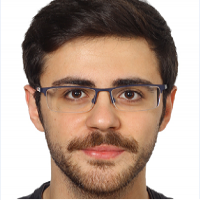
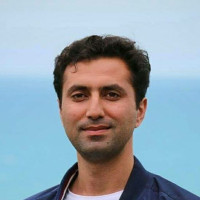
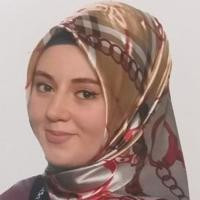

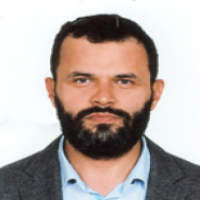

Christof Defryn is a Business Engineer (2012) and obtained a PhD in Applied Economics at the University of Antwerp (2017). From 2017 to 2023, he was Assistant Professor of Operations Research at the Maastricht University School of Business and Economics (NL), an institution that is famous for its problem-based educational system. Since 2023, he is appointed as Associate Professor of Operations Research and Supply Chain Management at the Faculty of Business and Economics of the University of Antwerp.
As part of his teaching activities, Christof has developed and taught multiple courses on Operations Management, Supply Chain Management, and Operations Research at both the Bachelor and Master levels. His main research focus is on the use of optimization techniques and algorithms – both exact methods and (meta)heuristics – for problems in the field of logistics and supply chain management. Among other things, this includes multi-stakeholder models for supply chain collaboration, speed optimization and vessel synchronization on inland waterways, data-driven optimization of dynamic warehouses, circular supply chain models, and logistics optimization in space.
Dr. Mohiuddin Ahmed has been educating the next generation of cyber leaders and researching to disrupt the cybercrime ecosystem. His research is focused on ensuring national security and safeguarding critical infrastructures from cyber terrorists. Mohiuddin has edited several books and contributed articles to The Conversation. His research publications in reputed venues attracted more than 6000 citations with a h-index of 31 and have been listed in the world's top 2% of scientists for the 2020-2023 citation impact. Mohiuddin secured several external and internal grants worth more than $1.7 Million and has been collaborating with academia and industry. He has been regularly invited to speak at international conferences and public organizations and interviewed by the media for expert opinion. He is also a Fellow of the Higher Education Academy, UK.
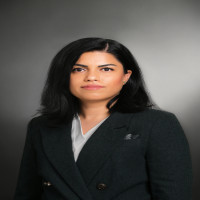
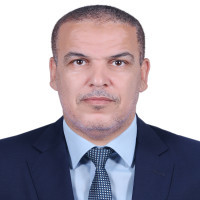
Osama Hosam is a dedicated academic and researcher currently serving as a faculty member at Sharjah Campus, Higher Colleges of Technology (HCT), within the Computer Information Systems (CIS) Department. He received his MSc in Computer Systems and Engineering from Azhar University in 2007, and later pursued his Ph.D. in Computer Science and Engineering at Hunan University, China, completing it in 2011. During his doctoral studies, he also worked in collaboration with Nanjing University of Technology.
In 2013, Dr. Osama took on the role of Assistant Professor at the College of Computer Science and Engineering in Yanbu, Saudi Arabia. His contributions to the field led to his promotion to Associate Professor in Computer and Information Security at Taibah University in 2017.
With research interests spanning Computer Graphics, 3D Watermarking, Stereo Vision, Pattern Recognition, and Information Security, Dr. Osama has made significant contributions through his published works and research projects. He continues to mentor students and drive research in areas such as software engineering, cybersecurity, and data analysis, contributing to secure and innovative technological advancements
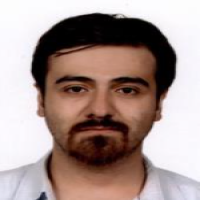
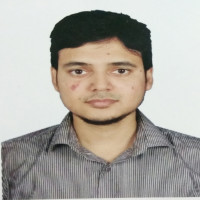
Dr. Iftekharul Mobin is a seasoned academic and researcher with over a decade across the UK, Japan, and the Bangladesh. He holds a PhD in Electrical Engineering and Computer Science from Queen Mary University of London, where he was awarded multiple prestigious scholarships, including the Capacity Building Scholarship and ImpactQM Research Grant.
Dr. Mobin specializes in Natural Language Processing (NLP), Machine Learning (ML), time-series prediction, and information retrieval systems. His extensive research includes developing NLP-powered chatbots, deep learning models, IoT applications, and health informatics. His work has been published in numerous high-impact journals and conference proceedings.
Throughout his academic career, Dr. Mobin has been instrumental in fostering industry-academia collaboration, mentoring students, and leading research initiatives. He has secured grants from Bangladesh's ICT Ministry and conducted international research projects in Japan and the UK. He is actively engaged in editorial and peer-review activities for reputed journals such as IEEE Access, Information Development, Plos-one, and AIUB Journal of Science and Engineering. His passion lies in advancing research, inspiring innovation, and bridging the gap between academia and industry.
Aim & Scope
The journal is designed to serve researchers, developers, managers, strategic planners, graduate students, and others interested in state-of-the-art research activities in computer science, information, knowledge engineering, and intelligent systems.
The journal publishes high-quality, refereed articles. It emphasizes a balanced coverage of both theory and practice. It fully acknowledges and vividly promotes a breadth of the discipline of Computer Engineering and information sciences.
The scope of the journal includes all fields of computer science, computer engineering, software engineering and information systems engineering.
Some of these fields are:
- Artificial Intelligence,
- Computer Networks,
- Computing Theory,
- Cybernetics,
- Cybersecurity,
- Data Structures and Algorithms,
- Deep Learning,
- Hardware & Architecture,
- Internet of Things,
- Robotics,
- Image Processing,
- Operating Systems,
- Programming Languages,
- Virtual and Augmented Reality
- Other fields on computer sciences
Author Guidelines
Academic impartiality and scientific quality are important criteria in the evaluation of articles submitted for publication. Therefore, the recommendations of the ICMJE (International Committee of Medical Journal Editors) and the International Standards for Editors and Authors of COPE (Committee on Publication Ethics) should be taken into account in scientific articles submitted to the SAUCIS journal.
Manuscripts to be published must be sent via the “Submit Article” page.
Ethical Principles and Publication Policy
The publication policy of the Sakarya University Journal of Computer and Information Sciences (SAUCIS) is based on the improvement and dissemination of information in an impartial and respectful manner. The processes applied in line with this policy directly affect the quality of the studies submitted by authors and affiliated institutions.The publication of an article in a peer-reviewed journal is essential for the development of a coherent and respected knowledge network. Peer-reviewed studies support and materialize the scientific method. Therefore, it is important for all relevant parties involved in the publishing process, including authors, journal editors, reviewers, and publishing agencies, to agree on the expected ethical behaviors and standards.
The ethical duties and responsibilities listed below are based on the guidelines and policies published as open access by the Committee on Publication Ethics (COPE).
Sakarya University Journal of Computer and Information Sciences expects all its parties to take on the following ethical responsibilities as part of the publication ethics.
1. Ethical Principles
1.1. Authorship of the Paper
Authorship should be limited to those who have made a significant contribution to the conception, design, execution, or interpretation of the reported study. All those who have made significant contributions should be listed as co-authors. Where there are others who have participated in certain substantive aspects of the research project, they should be acknowledged or listed as contributors. The corresponding author should ensure that all appropriate co-authors and no inappropriate co-authors are included in the paper and that all co-authors have seen and approved the final version of the paper and have agreed to its submission for publication.
1.2. Conflicts of Interest
Authors: All authors should disclose in their manuscript any financial or other substantive conflict of interest that might be construed to influence the results or interpretation of their manuscript. All sources of financial support for the project should be disclosed.
Reviewers: Referees should inform the journal editor about the evaluation process if they suspect any conflict of interest in the article they are evaluating and refuse article evaluation if necessary. To prevent conflict of interest, people in the institutions where the article authors are working cannot referee the article.
Editors: Editors should not have personal or financial conflicts of interest with articles.
1.3. Data Access and Retention
1.4. Data Fabrication and Falsification
Fabrication and/or falsified experimental results, including the manipulation of images.
1.5. Duplicate / Multiple Submission(s)
Manuscripts that are either found to have been submitted elsewhere or published elsewhere. If authors have used their own work, either previously submitted or published, as the basis for a submitted manuscript, they are required to cite the previous work. They also need to indicate how novel contributions are offered in their submitted manuscript, over and above those of the previous work.
1.6. Intellectual Property
1.7. Correction, Retraction, Expression of Concern
1.8. Publication of Studies Based on Surveys and Interviews
1.9. Policy of Publishing Additional or Special Issues
1.10. Actions that violate scientific research and publication ethics
Other ethical violations include:
a) Not specifying the supporting individuals, institutions or organizations and their contributions in the publications made as a result of research conducted with support.
b) Using theses or studies that have not yet been submitted or have not been accepted as a source without the permission of the owner,
c) Not complying with ethical rules in research on humans and animals, not respecting patients' rights in publications,
ç) Violating the provisions of the relevant legislation in biomedical research and other clinical research related to humans,
d) Sharing the information in a work that has been assigned for review with others before it is published without the explicit consent of the author,
e) Misusing resources, spaces, facilities, and equipment provided or allocated for scientific research,
f) Deliberately making a false and ungrounded allegation about ethical violation,
g) Publishing the data obtained from surveys conducted as part of a scientific study without the explicit consent of the participants, or without the permission of the relevant institution if the study is conducted in an institution,
h) Harming animal health and ecological balance in research and experiments,
ı) Failing to obtain written permissions from authorities that are required for starting research activities or experiments,
i) Conducting research activities or experiments in violation of the related legislation or the provisions on research and experiments in the international conventions to which Turkey is a party,
j) Disregarding the obligation to inform and warn the relevant authorities about possible harmful practices related to the scientific research.
k) Not using the data and information obtained from other individuals or institutions in scientific studies to the extent and as permitted, not respecting the confidentiality of this information and not ensuring its protection,
l) Making false or misleading statements regarding scientific research and publications in academic appointments and promotions.
1.11. Journal Policies on Data Sharing and Reproducibility
1.12. Ethical Guidelines for Authors
• Authors should not resubmit the same studies previously rejected in our journal. In such a case, the studies will be rejected.
1.13. Ethical Guidelines for Peer Reviewers
1.14. Ethical Guidelines for Editors
2. Publication Policy
Any manuscript that is considered to be published in SAUCIS must meet the following criteria:
2.1. Review of the Articles
2.2. Pre-Review and Plagiarism Checking
2.3. Editor/Field Editor Review
2.4. Peer Review Process (Double-Blind Peer Review)
2.5. Author's Revision
2.6. Field Editor Review
2.7. English Language Checks
2.8. Editorial Board Review
2.9. Typesetting and Layout Process
2.10. Language
2.11. Change of Authorship
2.12. Disclaimer
2.13. Complaints and Appeals
2.13.1. Complaints about the Content of a Paper
2.13.2. Complaints about Processes
2.13.3. Complaints about Ethics
The average time during which the preliminary assessment of manuscripts is conducted: 7 days.The average time during which the reviews of manuscripts are conducted: 60 days.The average time in which the article is published: 90 days.
Price Policy
• SAUCIS is an open-access journal which does not request any subscription fees for article submission, reviewing and editing processes, page-layout and publication (page or color fees).
• We do not offer a reprint service for those requiring professional quality reproductions of papers.
• SAUCIS does not pay any fees to authors, reviewers, editors and editorial board members.
• All papers on SAUCIS are free to read and download.
• SAUCIS sign on to the Budapest Open Access Initiative (BOAI), which promotes free access to research literature, and has adopted the Open Access Principles that clarified in this initiative.
• All papers on SAUCIS are archived with LOCKSS (Lots of Copies Keep Stuff Safe) system through TÜBİTAK ULAKBİM DERGIPARK.
• SAUCIS does not accept announcements, advertisements, sponsorships, etc. due to its publication policy.
• SAUCIS is an open-access journal that does not request any subscription fees.
• All expenses of the SAUCIS journal are covered by the publisher.
The papers in this journal are licensed under a Creative Commons Attribution-NonCommercial 4.0 International License



